7 Ways Safe Spaces Help Rohingya Women in Bangladesh’s Refugee Camps
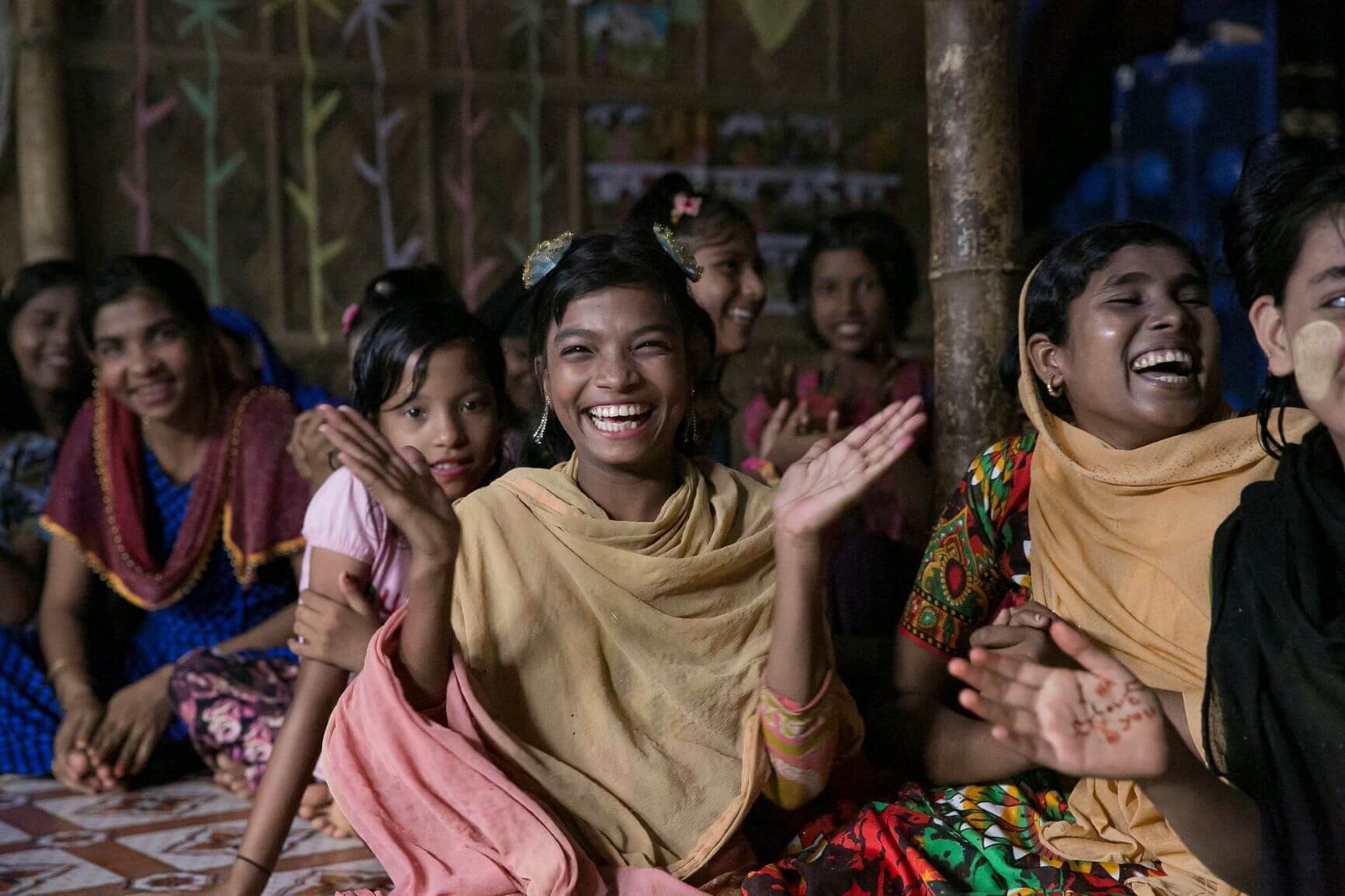
Over 1.3 million people have fled persecution in Myanmar for nearby Bangladesh. About one-quarter of those migrants are women and girls of reproductive age.
Over the last year, UNFPA, the United Nation’s reproductive health and rights agency, has supported 20 women-friendly safe spaces for Rohingya refugees. The spaces provide care to women and girls in the refugee camps in Bangladesh, including 30,000 women who are pregnant or nursing.
Here are seven ways in which these women-friendly safe spaces have helped support the sexual and reproductive health and rights of refugees in the camp:
1. Called “homes of peace,” safe spaces provide a sense of community.
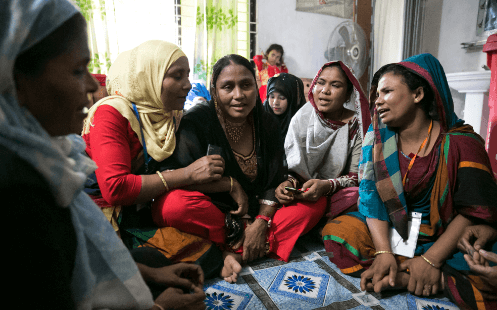
support at a UNFPA women-friendly space. Photo: UNFPA/Allison Joyce
For many Rohingya women and girls, the first time they have had access to sexual and reproductive healthcare has been in refugee camps.
To dispel misconceptions about women’s sexual and reproductive health and rights in the camps, UNFPA made an explainer video in the refugees’ Rakhine language and local Bangladeshi. Unfortunately, many women and girls felt unsafe leaving their shelters at night to attend a showing of the video.
Instead, screenings were done at safe spaces, also called shanti khana, or “homes of peace”.
2. Safe spaces support gender-based violence prevention and care.
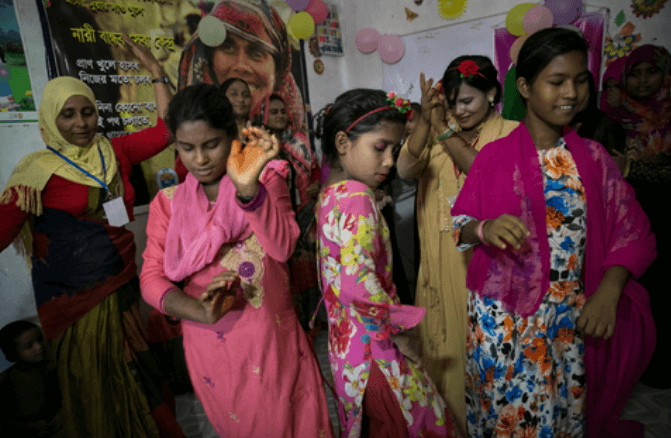
There are currently 20 active safe spaces for women and girls in Cox’s Bazar, Bangladesh. 17 of those spaces were specifically created for Rohingya refugees.
Safe spaces for Rohingya refugees support the program, Girls Shine. Girls involved in the program learn about child marriage, puberty, and safety mapping. Safety mapping is when local knowledge is pooled and guides are created detailing which areas people in the community feel are important and which areas they feel safe to be in.
Safety mapping is one tool that prevents gender-based violence. The safe spaces also provide medical, psychosocial, and legal services for survivors of gender-based violence, including post-rape care.
3. Women are able to access to voluntary family planning at safe spaces.
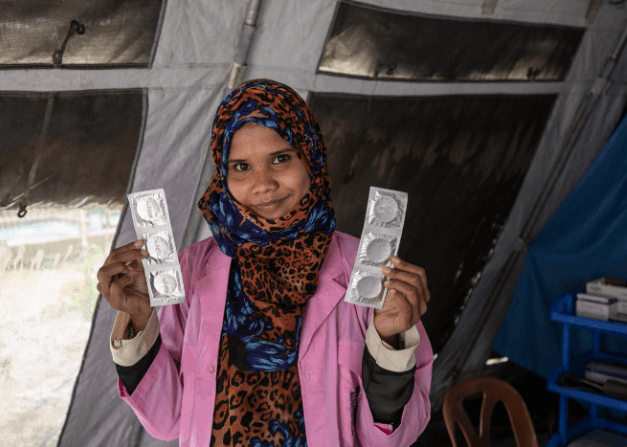
Photo: UNFPA Bangladesh
Over 100 UNFPA midwives cared for more than 30,000 women at safe spaces in 2018.
Awareness and usage of long-term reversible contraceptives like IUDs has increased nearly 6 times over the last year for women who have just given birth and wish to delay another pregnancy.
Part of this increase is due to conversations UNFPA staff have had with religious leaders about the intersection of their faith and family planning. 154,000 Rohingya people were provided with birth control supplied by UNFPA in 2018. Contraception allows women to take control of their reproductive lives and make choices about what is best for their families.
4. Dignity kits are distributed to support women’s health, even if safe spaces are not open.
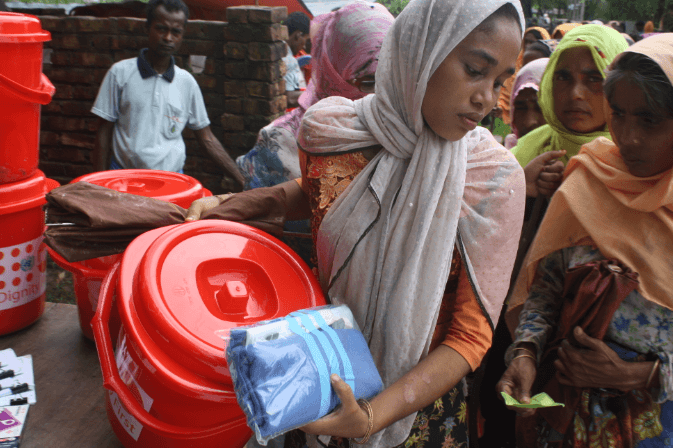
Monsoon season lasts from June to October in Bangladesh. During this time, flooding and storms can devastate shelters for refugees. Some of the shelters, including some safe spaces, are made only of bamboo and plastic sheets.
While UNFPA has strengthened safe spaces for Rohingya refugees in anticipation of monsoon season, they have also stepped up the distribution of dignity kits. Dignity kits contain items like soap, underwear, a whistle, and menstrual supplies. The kits ensure that if a woman cannot make it to a safe space or if she is otherwise displaced by the storms, she still has the items she needs to be healthy and safe.
5. Midwives can provide prenatal and delivery care at the safe spaces.
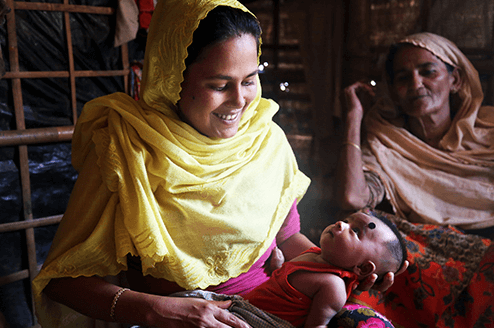
There are currently 30,000 pregnant women in Cox’s Bazaar, Bangladesh. Many of these women have received food vouchers to ensure that they receive the nutrients they need to have healthy pregnancies.
UNFPA mobile clinics and midwives have led to a 40 percent increase in the number of prenatal care visits and deliveries taking place in health facilities in the camps. Both of these measures help prevent maternal death and ensure that all mothers, regardless of their situation, can have a safe birth.
6. Safe spaces put on skills training programs.
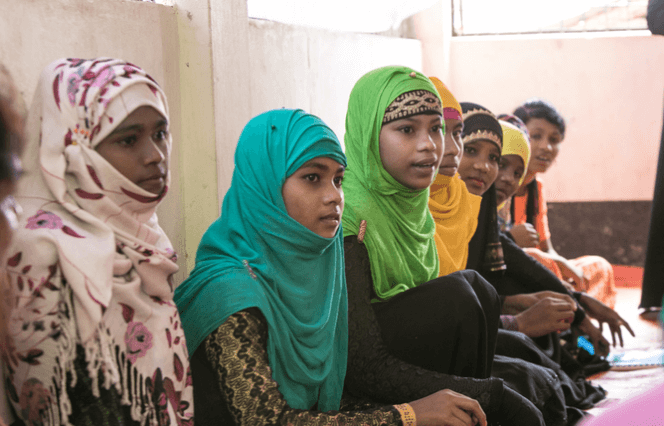
Photo: UNFPA Bangladesh
Earlier this year, UNFPA created 10 women-led community centers, 7 of which are for Rohingya refugees, to conduct skills trainings.
Women and girls who attend the trainings learn how to sew and how to earn money from their work. During crisis situations, women are more likely to forego food and medicines for their family, even if they are pregnant or sick themselves. Economic independence through skills training allows women to obtain the food and other supplies they need to be healthy.
7. Some safe space programs work with men and boys to change attitudes on gender roles and to create awareness of gender-based violence.
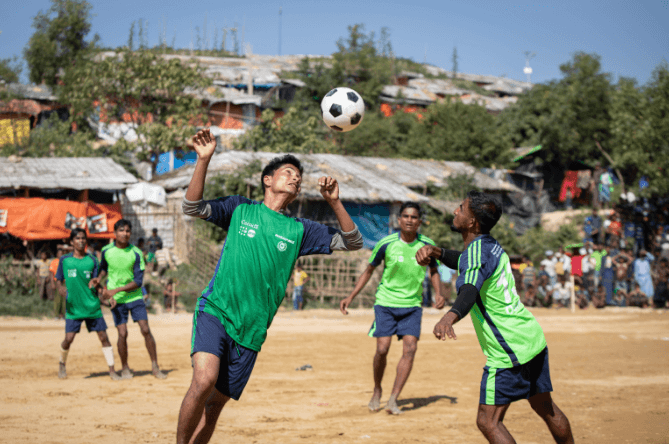
Photo: UNFPA Bangladesh
At community centers, UNFPA has engaged men by holding workshops that raise awareness of harmful practices, like child marriage. Many child brides become young mothers and are at an increased risk for pregnancy or childbirth complications like obstetric fistula. Worldwide, complications like obstetric fistula are a leading killer of adolescent girls. Men in the programs are encouraged not to marry children themselves and not to marry off their own daughters. They are also taught how to report child marriages.
UNFPA also educates men on what violence against women looks like and what their role is in preventing future violence. One way this is accomplished in the camps is through community soccer tournaments where announcers report facts about gender-based violence throughout the game.
Cox’s Bazar, Bangladesh has become a home to over 1 million refugees who have fled violence and persecution. Yet, even after they have settled into their new lives, many women and girls still face violence and need care. UNFPA’s safe spaces provide vulnerable refugees a place to rebuild their social circles, to be empowered through skills trainings, and to receive information and services regarding their sexual and reproductive health and rights.
-Dana Kirkegaard